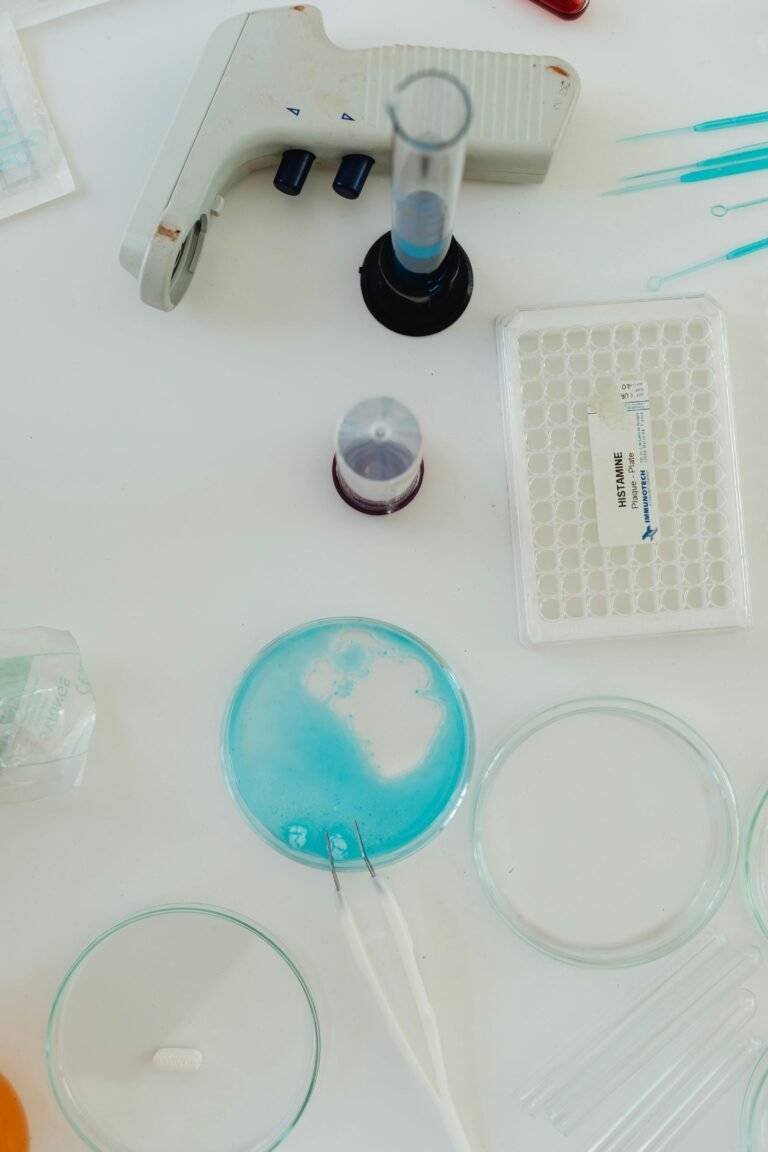Unlocking Mysteries: Is Genomics the Same as Genetic Testing
-
Table of Contents
- Understanding The Differences: Is Genomics The Same As Genetic Testing?
- Exploring Genomics And Genetic Testing: Are They The Same?
- Genomics Vs. Genetic Testing: What Sets Them Apart?
- Is Genomics The Same As Genetic Testing? A Comprehensive Guide
- The Distinction Between Genomics And Genetic Testing: Are They Identical?
- Unraveling The Confusion: Is Genomics The Same As Genetic Testing?
- Q&A
“Genomics: The Blueprint of Life; Genetic Testing: Your Personalized Insight.”
Understanding The Differences: Is Genomics The Same As Genetic Testing?
In the rapidly evolving field of biological sciences, the terms “genomics” and “genetic testing” are often used interchangeably, yet they represent distinct concepts with unique applications and implications. Understanding the differences between these two terms is crucial for both professionals in the field and individuals seeking to comprehend the impact of these technologies on healthcare and society.
Genomics is a broad discipline within biology that focuses on the comprehensive study of genomes, which are the complete set of DNA within an organism, including all of its genes. This field encompasses the sequencing, analysis, and comparison of genomes to understand the structure, function, and evolution of genes and their interactions. Genomics aims to provide a holistic view of how genes contribute to the complex biological systems that govern life. It involves large-scale data analysis and often requires sophisticated computational tools to interpret the vast amounts of information generated. The insights gained from genomics have far-reaching implications, influencing areas such as personalized medicine, evolutionary biology, and biotechnology.
In contrast, genetic testing is a more specific application of genetic science that involves analyzing an individual’s DNA to identify changes or mutations that may indicate a risk for certain diseases or conditions. Genetic testing is typically used in a clinical setting to provide information about a person’s genetic predisposition to health issues, confirm a suspected genetic condition, or guide treatment decisions. It is a targeted approach, focusing on specific genes or regions of the genome that are known to be associated with particular health outcomes. Genetic testing can be performed at various stages of life, from prenatal screening to adult testing for hereditary conditions.
While both genomics and genetic testing involve the study of DNA, their objectives and methodologies differ significantly. Genomics seeks to understand the broader genetic landscape and its implications for biology and medicine, whereas genetic testing is concerned with identifying specific genetic variations that have direct clinical relevance. This distinction is important because it highlights the different scales at which these fields operate. Genomics provides a macro-level perspective, offering insights into the genetic architecture of populations and species, while genetic testing delivers micro-level information pertinent to individual health.
Moreover, the implications of these fields extend beyond their scientific and clinical applications. Genomics has the potential to revolutionize our understanding of complex diseases by uncovering the genetic and environmental factors that contribute to their development. This knowledge can lead to the development of new therapeutic strategies and preventive measures. On the other hand, genetic testing raises important ethical and social considerations, such as privacy concerns, the potential for genetic discrimination, and the psychological impact of knowing one’s genetic risks.
In conclusion, while genomics and genetic testing are interconnected, they serve different purposes and operate on different scales. Genomics provides a comprehensive view of genetic information, contributing to our understanding of biological systems and disease mechanisms. Genetic testing, however, offers specific insights into an individual’s genetic makeup, aiding in the diagnosis and management of genetic conditions. Recognizing these differences is essential for appreciating the distinct roles each plays in advancing science and improving healthcare outcomes. As these fields continue to evolve, their integration will likely enhance our ability to harness genetic information for the benefit of individuals and society as a whole.
Exploring Genomics And Genetic Testing: Are They The Same?
In the rapidly evolving field of biotechnology, the terms “genomics” and “genetic testing” are often used interchangeably, yet they represent distinct concepts with unique applications and implications. Understanding the differences between these two areas is crucial for appreciating their roles in modern science and medicine. Genomics is a broad discipline that encompasses the comprehensive study of genomes, which are the complete set of DNA within an organism, including all of its genes. This field involves the sequencing, analysis, and comparison of genomes to understand the structure, function, and evolution of genes and their interactions. Genomics aims to provide a holistic view of how genes contribute to the biology of an organism, offering insights into complex biological systems and the genetic basis of diseases.
In contrast, genetic testing is a more focused application that involves analyzing specific genes or segments of DNA to identify variations or mutations that may be associated with particular health conditions or traits. Genetic testing is often used in clinical settings to diagnose genetic disorders, assess the risk of developing certain diseases, or guide treatment decisions. While genomics provides a broad understanding of genetic information, genetic testing offers targeted insights that can directly impact individual health care.
The distinction between genomics and genetic testing becomes clearer when considering their methodologies and objectives. Genomics employs high-throughput sequencing technologies and bioinformatics tools to analyze entire genomes, generating vast amounts of data that require sophisticated computational methods to interpret. This comprehensive approach allows researchers to explore the complex interactions between genes and environmental factors, leading to discoveries that can inform personalized medicine, drug development, and public health strategies.
On the other hand, genetic testing typically involves more specific techniques, such as polymerase chain reaction (PCR) or microarray analysis, to detect known genetic variants associated with particular conditions. These tests are often designed to answer specific clinical questions, such as whether an individual carries a mutation linked to a hereditary disease. As a result, genetic testing can provide actionable information that helps individuals and healthcare providers make informed decisions about medical care and lifestyle choices.
Despite their differences, genomics and genetic testing are interconnected and complementary. Advances in genomics have expanded the scope and accuracy of genetic testing, enabling the identification of new genetic markers and the development of more precise diagnostic tools. Conversely, data from genetic testing can contribute to genomic research by providing insights into the prevalence and impact of genetic variations in diverse populations.
As the field of genomics continues to advance, ethical considerations and privacy concerns have emerged, particularly regarding the use and sharing of genetic data. Both genomics and genetic testing raise important questions about consent, data security, and the potential for genetic discrimination. Addressing these issues requires careful regulation and public engagement to ensure that the benefits of these technologies are realized while minimizing potential risks.
In conclusion, while genomics and genetic testing are distinct yet related fields, they each play a vital role in advancing our understanding of genetics and improving healthcare outcomes. By recognizing their differences and appreciating their complementary nature, we can better harness the power of genetic information to enhance human health and well-being. As research and technology continue to evolve, the integration of genomics and genetic testing will undoubtedly lead to new discoveries and innovations that will shape the future of medicine.
Genomics Vs. Genetic Testing: What Sets Them Apart?
In the rapidly evolving field of medical science, the terms “genomics” and “genetic testing” are often used interchangeably, yet they represent distinct concepts with unique applications and implications. Understanding the differences between these two areas is crucial for both healthcare professionals and patients navigating the complexities of personalized medicine. Genomics, a broad and comprehensive field, encompasses the study of an organism’s entire genome, which includes all of its genes and their interactions with each other and the environment. This discipline extends beyond the mere analysis of individual genes, focusing instead on the complex interplay of genetic information that contributes to the overall functioning and development of an organism. By examining the entire genome, researchers can gain insights into how genetic variations influence health, disease susceptibility, and response to treatments.
In contrast, genetic testing is a more targeted approach that involves analyzing specific genes or segments of DNA to identify mutations or variations that may be associated with particular health conditions. This type of testing is often used to diagnose genetic disorders, assess the risk of developing certain diseases, or guide treatment decisions. While genetic testing provides valuable information about an individual’s genetic makeup, it does not offer the comprehensive view that genomics does. Instead, it focuses on specific areas of interest, making it a powerful tool for addressing particular medical questions.
The distinction between genomics and genetic testing becomes even more apparent when considering their applications in clinical practice. Genomics has the potential to revolutionize healthcare by enabling the development of personalized treatment plans based on an individual’s unique genetic profile. This approach, known as precision medicine, aims to tailor medical interventions to the specific genetic characteristics of each patient, thereby improving outcomes and minimizing adverse effects. For example, genomics can help identify patients who are likely to respond well to certain medications or who may be at increased risk for adverse reactions, allowing for more informed and effective treatment decisions.
On the other hand, genetic testing is often used in a more focused manner to address specific clinical questions. For instance, it can be employed to confirm a suspected genetic disorder, such as cystic fibrosis or Huntington’s disease, or to determine an individual’s carrier status for certain inherited conditions. Additionally, genetic testing can be used to assess the risk of developing diseases like breast or ovarian cancer by identifying mutations in genes such as BRCA1 and BRCA2. While these tests provide critical information for managing individual health, they do not offer the broader insights into genetic interactions and environmental influences that genomics can provide.
In summary, while both genomics and genetic testing play vital roles in advancing our understanding of human health and disease, they differ significantly in scope and application. Genomics offers a comprehensive view of the entire genome and its interactions, paving the way for personalized medicine and more effective healthcare strategies. In contrast, genetic testing provides targeted insights into specific genetic variations, aiding in the diagnosis and management of particular health conditions. As the field of genomics continues to evolve, it is essential for both healthcare providers and patients to recognize these distinctions and appreciate the unique contributions each approach brings to the table. By doing so, they can better harness the power of genetic information to improve health outcomes and enhance the quality of care.
Is Genomics The Same As Genetic Testing? A Comprehensive Guide
Genomics and genetic testing are terms often used interchangeably, yet they represent distinct concepts within the field of genetics. Understanding the nuances between these two is crucial for anyone delving into the world of genetic science. Genomics is a broad discipline that encompasses the comprehensive study of genomes, which are the complete set of DNA within an organism, including all of its genes. It involves the analysis of the structure, function, evolution, and mapping of genomes. This field extends beyond the examination of individual genes to consider the complex interactions and networks that govern biological processes. Genomics aims to understand how genes interact with each other and with the environment to influence traits and diseases.
In contrast, genetic testing is a more specific application within the broader field of genomics. It involves analyzing an individual’s DNA to identify changes or mutations that may indicate a risk for certain genetic disorders. Genetic testing can be used for a variety of purposes, such as diagnosing genetic conditions, determining the likelihood of developing a particular disease, or guiding treatment decisions. While genomics provides a comprehensive view of the entire genome, genetic testing focuses on specific genes or regions of interest. This distinction is important because it highlights the different scales at which these two approaches operate.
Moreover, the methodologies employed in genomics and genetic testing also differ. Genomics often utilizes high-throughput sequencing technologies, such as whole-genome sequencing, to analyze large amounts of genetic data. This approach allows researchers to study the entire genome in a single experiment, providing a holistic view of genetic variation. On the other hand, genetic testing typically employs targeted sequencing or genotyping methods to examine specific genetic markers. These tests are designed to detect known mutations associated with particular diseases or conditions, making them more focused and limited in scope compared to genomic studies.
Furthermore, the implications of genomics and genetic testing for healthcare and medicine are profound. Genomics has the potential to revolutionize personalized medicine by enabling the development of tailored treatments based on an individual’s genetic makeup. By understanding the genetic basis of diseases, researchers can identify new therapeutic targets and develop more effective drugs. Genetic testing, meanwhile, plays a critical role in preventive medicine by allowing individuals to assess their risk for certain conditions and make informed decisions about their health. It can also aid in the early detection of diseases, improving the chances of successful treatment.
Despite their differences, genomics and genetic testing are complementary fields that together contribute to our understanding of genetics and its impact on human health. As technology advances, the lines between these two areas may continue to blur, leading to more integrated approaches to studying and applying genetic information. In conclusion, while genomics and genetic testing are not the same, they are interconnected disciplines that each offer unique insights into the complex world of genetics. By appreciating their distinctions and recognizing their contributions, we can better harness the power of genetic science to improve health outcomes and advance medical research.
The Distinction Between Genomics And Genetic Testing: Are They Identical?
In the rapidly evolving field of biological sciences, the terms “genomics” and “genetic testing” are often used interchangeably, yet they represent distinct concepts. Understanding the nuances between these two areas is crucial for both professionals in the field and the general public. Genomics, in its broadest sense, refers to the comprehensive study of an organism’s entire genome, which includes all of its genes and their functions. This field encompasses the analysis of complex interactions within the genome, as well as the influence of environmental factors on gene expression. In contrast, genetic testing is a more focused approach, typically involving the examination of specific genes or segments of DNA to identify mutations or variations that may lead to disease or other health-related conditions.
To further elucidate the distinction, it is important to consider the scope and objectives of each discipline. Genomics aims to map, sequence, and analyze the complete set of DNA within an organism, providing insights into genetic diversity, evolutionary biology, and the molecular mechanisms underlying various biological processes. This holistic approach allows researchers to explore how genes interact with each other and with external factors, ultimately contributing to a deeper understanding of complex traits and diseases. On the other hand, genetic testing is primarily concerned with identifying genetic predispositions to certain conditions, diagnosing genetic disorders, and informing personalized treatment plans. It is a tool used in clinical settings to provide individuals with information about their genetic makeup, often with the goal of guiding medical decisions.
Moreover, the methodologies employed in genomics and genetic testing further highlight their differences. Genomics relies on high-throughput sequencing technologies and bioinformatics tools to analyze large datasets, often involving the comparison of genomes across different species or populations. This approach enables the identification of genetic variations that may contribute to phenotypic differences or susceptibility to diseases. In contrast, genetic testing typically involves targeted sequencing or specific assays designed to detect known mutations or genetic markers associated with particular conditions. These tests are often more limited in scope but provide precise information relevant to an individual’s health.
Despite these distinctions, it is important to recognize that genomics and genetic testing are interconnected and complementary. Advances in genomics have significantly enhanced the capabilities of genetic testing, enabling more accurate and comprehensive assessments of genetic risk factors. For instance, the identification of novel genetic variants through genomic research can lead to the development of new diagnostic tests, expanding the range of conditions that can be detected and monitored. Conversely, data obtained from genetic testing can inform genomic studies by providing insights into the prevalence and impact of specific mutations within populations.
In conclusion, while genomics and genetic testing are not identical, they are integral components of the broader field of genetics. Each serves a unique purpose, with genomics offering a wide-ranging exploration of genetic information and genetic testing providing targeted insights into individual health. As research continues to advance, the integration of these disciplines will undoubtedly lead to more personalized and effective approaches to healthcare, ultimately benefiting both individuals and society as a whole. Understanding the distinction between genomics and genetic testing is essential for appreciating their respective contributions to science and medicine.
Unraveling The Confusion: Is Genomics The Same As Genetic Testing?
In recent years, the fields of genomics and genetic testing have garnered significant attention, often leading to confusion about their distinct roles and applications. While both are integral to the study of genetics, they serve different purposes and operate on varying scales. Understanding the nuances between genomics and genetic testing is crucial for appreciating their contributions to modern science and medicine.
To begin with, genomics is a broad discipline that encompasses the comprehensive study of genomes, which are the complete set of DNA within an organism, including all of its genes. This field extends beyond the mere analysis of individual genes to explore the complex interactions and functions of the entire genome. Genomics aims to map, sequence, and analyze the structure, function, and evolution of genomes. By doing so, it provides insights into the genetic basis of diseases, evolutionary biology, and the intricate mechanisms that govern life. The Human Genome Project, completed in 2003, is a landmark achievement in genomics, having mapped the entire human genome and paving the way for numerous advancements in personalized medicine and biotechnology.
In contrast, genetic testing is a more focused application within the broader scope of genetics. It involves analyzing specific genes or segments of DNA to identify variations or mutations that may be associated with particular health conditions or traits. Genetic testing is often used in clinical settings to diagnose genetic disorders, assess the risk of developing certain diseases, or guide treatment decisions. For instance, tests for BRCA1 and BRCA2 gene mutations can help determine an individual’s risk of developing breast and ovarian cancers. Moreover, genetic testing can be employed in prenatal screening, carrier testing, and even ancestry tracing, offering valuable information for individuals and families.
Despite their differences, genomics and genetic testing are interconnected, with advancements in one field often informing and enhancing the other. Genomics provides the foundational knowledge and technological innovations that enable more precise and comprehensive genetic tests. Conversely, data from genetic testing can contribute to genomic research by identifying new genetic variants and expanding our understanding of genetic diversity and disease mechanisms.
Furthermore, the integration of genomics and genetic testing into healthcare has the potential to revolutionize personalized medicine. By tailoring medical interventions based on an individual’s genetic makeup, healthcare providers can offer more effective and targeted treatments, minimize adverse drug reactions, and improve overall patient outcomes. This approach not only enhances the quality of care but also holds promise for reducing healthcare costs by preventing disease and optimizing treatment strategies.
Nevertheless, the increasing accessibility and application of genomics and genetic testing raise important ethical, legal, and social considerations. Issues such as genetic privacy, informed consent, and potential discrimination based on genetic information must be carefully addressed to ensure that the benefits of these technologies are realized without compromising individual rights and societal values.
In conclusion, while genomics and genetic testing are distinct yet complementary fields, their convergence is driving significant advancements in our understanding of genetics and its application in medicine. By unraveling the complexities of the genome and harnessing the power of genetic testing, scientists and healthcare professionals are poised to transform the landscape of medical research and practice, ultimately improving human health and well-being. As these fields continue to evolve, ongoing education and dialogue will be essential to navigate the challenges and opportunities they present.
Q&A
1. **Question:** What is genomics?
**Answer:** Genomics is the study of the entirety of an organism’s genes, known as the genome, including their structure, function, evolution, and mapping.
2. **Question:** What is genetic testing?
**Answer:** Genetic testing involves analyzing specific genes or segments of DNA to identify changes or mutations that may indicate a risk for certain diseases or conditions.
3. **Question:** Is genomics the same as genetic testing?
**Answer:** No, genomics is a broader field that encompasses the study of all genes and their interactions, while genetic testing focuses on examining specific genes or genetic markers.
4. **Question:** How does genomics differ from genetic testing in terms of scope?
**Answer:** Genomics covers the entire genome and its interactions, whereas genetic testing targets specific genes or regions for analysis.
5. **Question:** Can genetic testing be part of genomics research?
**Answer:** Yes, genetic testing can be a component of genomics research, as it provides detailed information about specific genetic variations within the broader context of the genome.
6. **Question:** What is the primary goal of genomics?
**Answer:** The primary goal of genomics is to understand the structure, function, and interactions of all genes within an organism’s genome to gain insights into health, disease, and evolution.






